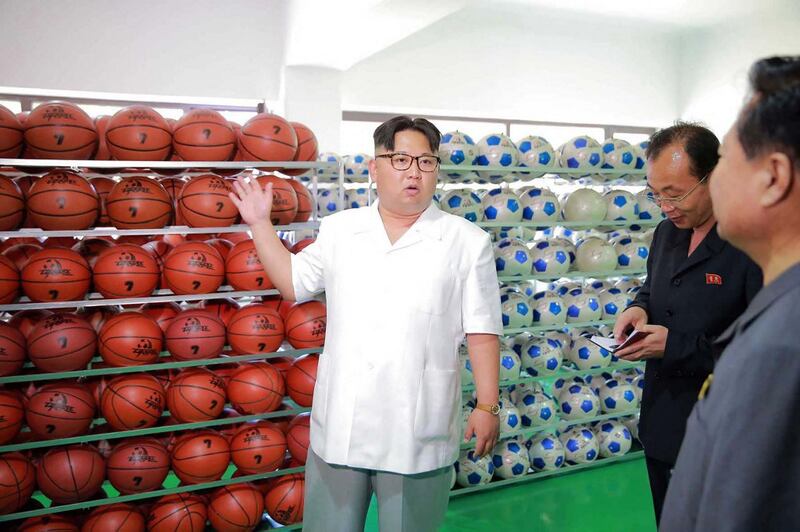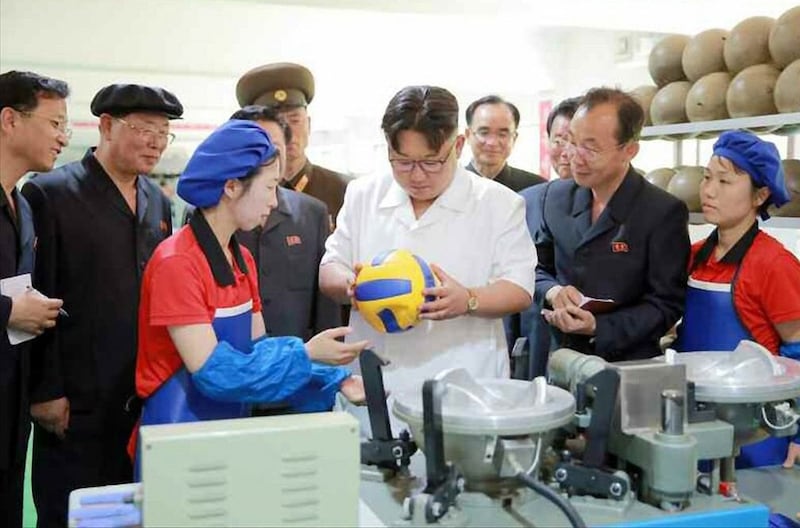Though largely shut off from the global economy, North Korea last year issued eight international trademarks and three international patents, recently released data show.
Seven companies in North Korea registered the eight trademarks, one more than the previous year, according to data from the Geneva-based World Intellectual Property Organization (WIPO) released last week.
The three patents registered by North Korean companies in 2021 were a “slanted smoke-tube boiler,” a “healthcare instrument for sauna at room temperature and local irradiation treatment,” and a “local hemostatic composition.”
Soo Kim, a policy analyst at the RAND Corporation, told RFA’s Korean Service that although North Korea does on occasion register international trademarks, it is unclear how many countries it economically interacts with, given the broad sanctions it is under and a shoddy track record of dealing honestly with international partners.
“Through these trademarks, North Korea may be seeking to undermine the international community’s barriers vis-a-vis Pyongyang’s integration into the international community,” Soo Kim said.
She added that Kim Jong Un knows the way to true integration with the international community depends on its denuclearization and basic human rights protections.
To date, North Korea has registered about 100 international trademarks, WIPO data show. For comparison, South Korean companies have registered approximately 4.2 million international trademarks.

North Korea has to date registered a total of 55 patents, compared with about 200,000 registered by South Korean companies.
All these companies given trademark protections are known to have been visited by Kim Jong Un.
He most recently visited the Sangwon Cement Factory in North Hwanghae province’s Sangwon county, just south of Pyongyang. The state-run Korea Central News Agency on Feb. 14 reported that he presented a gift to the cement company to encourage an increase in production.
Kim visited the Chollima tile factory in August 2014 after it was renamed. It had been associated with Jang Song Theak, Kim’s uncle whom he had executed in 2013 in what observers believe was an effort to consolidate power.
The court that sentenced Jang said he had blocked an attempt to film video footage of the production process inside the factory as they were providing tile needed for national monuments and mosaic murals glorifying North Korea’s previous leaders.
In 2016, Kim inspected the Pyongyang Sports Equipment Factory in Taesongsan, noting that its warehouse was overflowing with basketballs, widely known to be his favorite sport. He said it was an important site to produce world class-sports equipment.
The other companies that registered international trademarks last year were the Taesongsan Ice Cream Factory, the HyangODong plastic packaging company, the RyuGyongGwan restaurant, and the Mokran Kwangmyomg film distribution company, which registered two trademarks.
North Korea joined the World Intellectual Property Organization in 1974 and signed the Patent Cooperation Treaty in 1980. North Korea is also a signatory to the Paris Convention, an 1883 agreement on the international protection of industrial property rights. Currently 140 countries including the United States and South Korea are signed members.

Patent attorneys in Washington told RFA’s Korean Service that anyone is eligible to file a patent application with WIPO. A patent application alone would not violate U.S.-imposed sanctions, they said.
“North Korea is a signatory to the Paris Convention, so it seems that North Korea can apply for and register a patent in the United States,” Yoon S. Ham, a Washington-based patent attorney told RFA Jan. 6.
“North Korea can apply for a patent in the United States, receive registration, and exercise its patent rights,” Ham said.
In fact, North Koreans applied for one patent and 10 trademarks in the U.S. between fiscal years 2016 and 2020, according to the most recent United States Patent and Trademark Office’s Performance and Accountability Report.
North Korea’s dealings with WIPO are not without controversy. In 2012, the U.S. government expressed concern that WIPO’s support package of computers and other information and communication equipment to North Korea could violate U.N. sanctions on Pyongyang.
In 2017, North Korea raised eyebrows when it filed a patent application with WIPO for a method of producing of sodium cyanide, a sanctioned compound with a primary application in gold mining.
WIPO did not respond to RFA’s requests for comment.
Translated by Claire Lee and Leejin Jun. Written in English by Eugene Whong.
